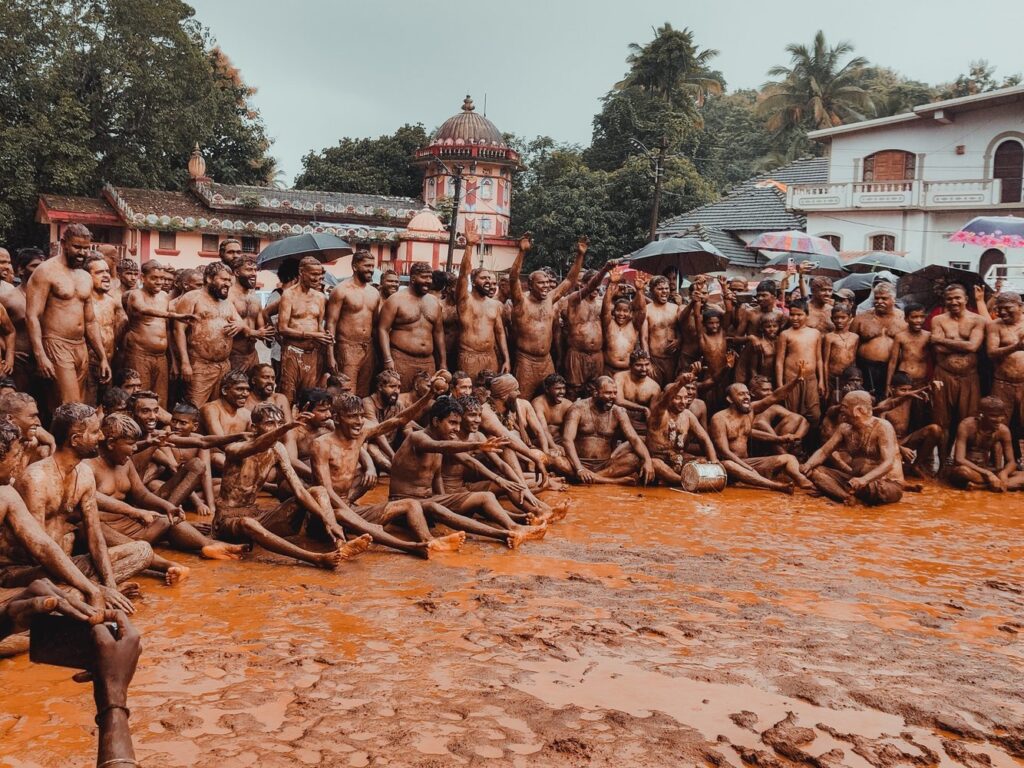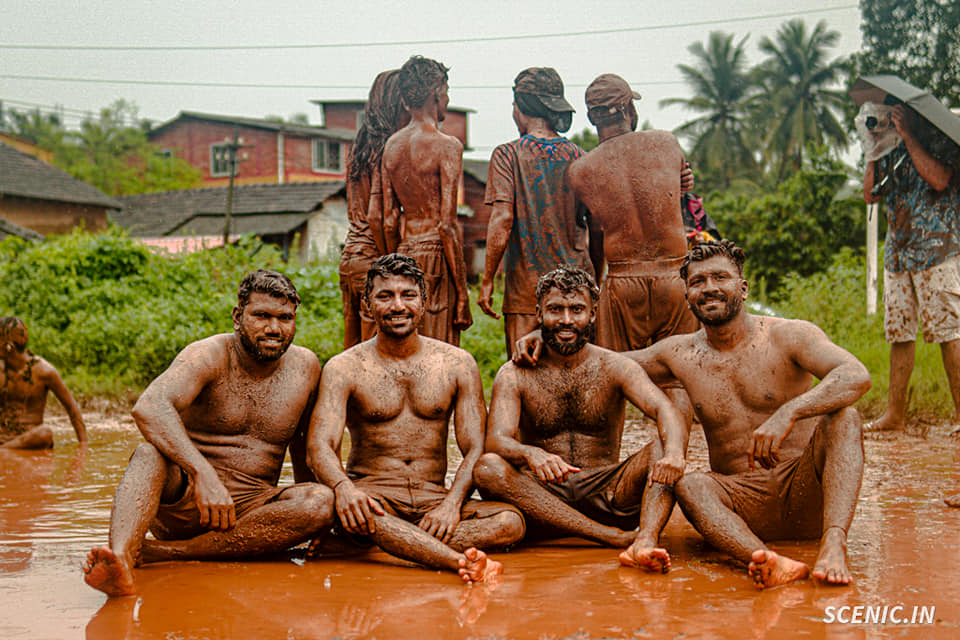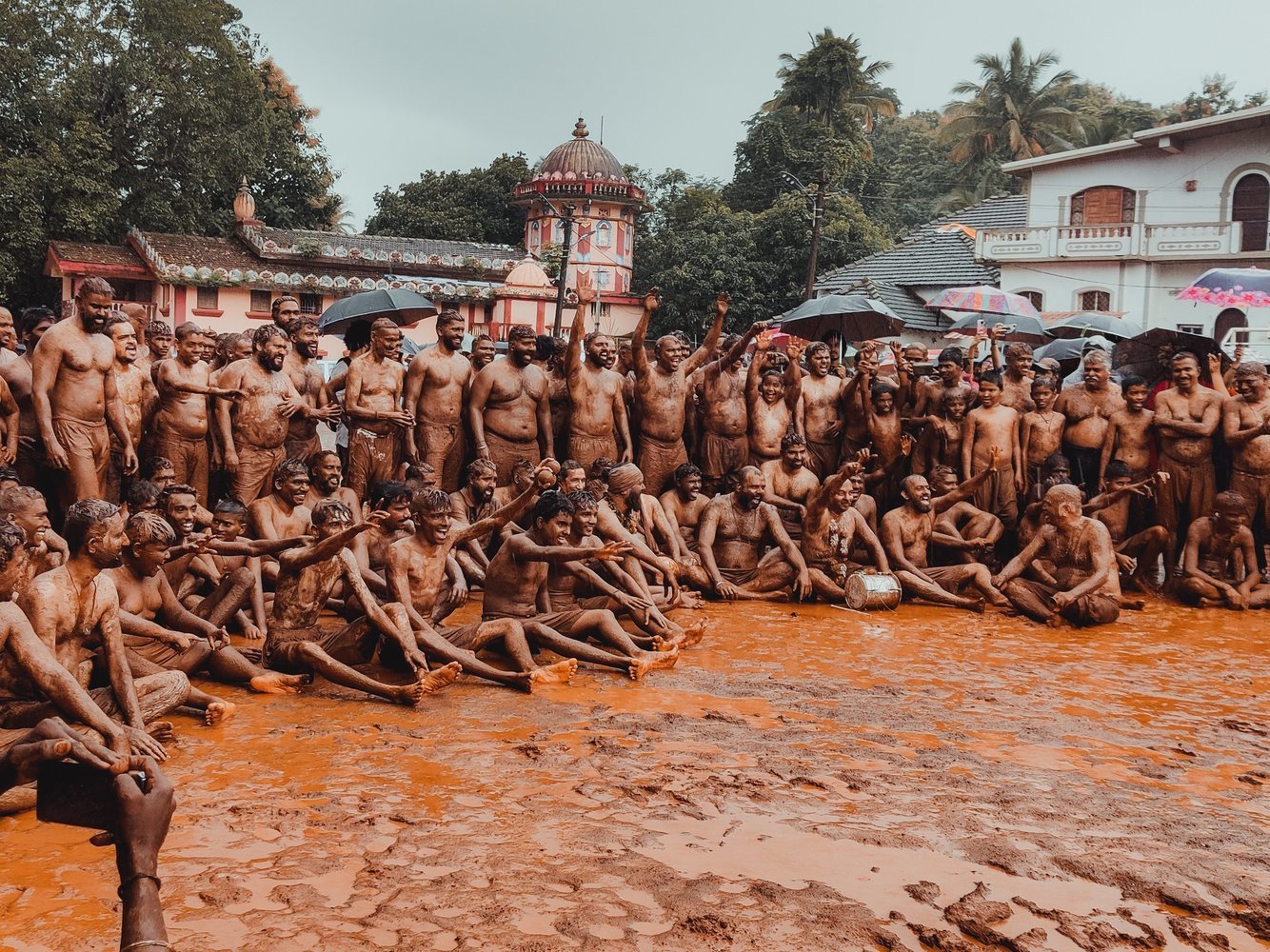
Chikal Kalo Festival of Goa: A Muddy Celebration of Tradition and Community
Every year, in the picturesque village of Marcel in Goa, the Chikal Kalo festival unfolds as one of India’s most unique and vibrant celebrations. Rooted deeply in tradition and local culture, this festival brings together the community in a joyful and muddy embrace, transcending mere festivity to highlight themes of unity, fertility, and cultural heritage.
Origins and Significance
The term “Chikal Kalo” translates to “mud games,” perfectly capturing the essence of this exuberant event. Historically, Chikal Kalo is believed to have origins in agrarian rituals, symbolizing fertility and a bountiful harvest. The festival is celebrated in honor of Lord Krishna, reflecting the playful spirit of the deity’s childhood.
The Festivities
The celebrations typically occur in the month of July, coinciding with the monsoon season when the rains transform the landscape into a lush, muddy playground. On the day of the festival, villagers and visitors gather in the open fields, where the main activities take place. The participants, dressed in simple, often white clothing, soon become unrecognizable as they immerse themselves in the mud, symbolizing a return to the earth and nature.
A series of traditional games and activities ensue, including kabaddi, tug-of-war, and other local sports, all played in the slippery mud. These games not only entertain but also foster a sense of camaraderie and community spirit. The sight of villagers, covered head-to-toe in mud, laughing and playing, creates a vivid and joyous atmosphere.

Cultural and Social Impact
Chikal Kalo is more than just a fun-filled event; it serves as a reminder of the cultural heritage and communal values that are integral to the Goan way of life. The festival reinforces social bonds, bringing together people of all ages and backgrounds in a shared experience of joy and festivity. For the younger generation, it is an opportunity to connect with their roots and learn about the traditions of their ancestors.
In recent years, Chikal Kalo has also attracted tourists, eager to witness and participate in this unique celebration. This influx of visitors has helped to spread awareness of Goan culture and traditions beyond the region, contributing to the preservation and appreciation of this distinctive festival.
Conclusion
The Chikal Kalo festival of Goa stands as a vibrant testament to the enduring power of tradition, community, and the joy of simple pleasures. As participants dive into the mud and engage in playful competition, they celebrate not only a historical custom but also the timeless values of unity and cultural heritage. In a world that is increasingly fast-paced and digital, Chikal Kalo offers a refreshing reminder of the beauty of human connection and the rich tapestry of Indian traditions.


